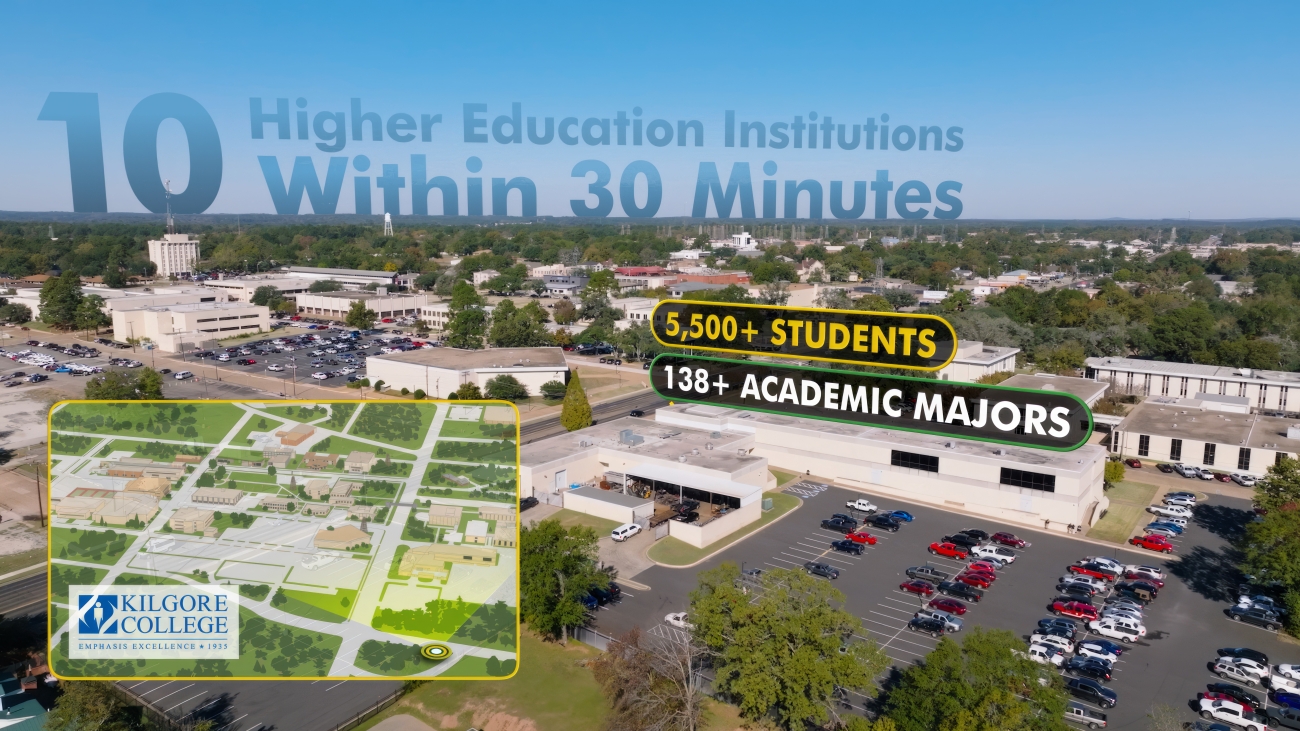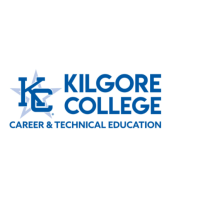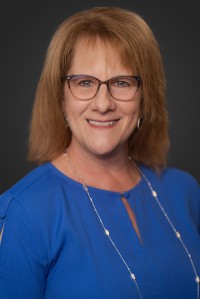Human Resources Leaders Attend Higher Education Summit
Human Resources Leaders Attend Higher Education Summit

Events
Feb 27, 2024
Staff Reports
Higher education in East Texas continues to bridge the gap between companies and their workforce – Kilgore College, LeTourneau University and the University of Texas at Tyler are all reaching out to an array of sectors to prime students of all ages for on-the-job success.
Kilgore Economic Development Corporation hosted a higher ed summit at Synergy Park in mid-December, welcoming business leaders to hear how the three schools are refining course offerings to elevate future workers.
The institutions respond directly to the needs they hear from the operations that employ graduates, says KEDC Executive Director Lisa Denton, ensuring both traditional and nontraditional students have the specific skills they need to build careers in East Texas (and beyond) and help drive success for their employers.

Key for both Kilgore College and KEDC is the development of the institution's new transportation institute, a coordinated effort between the school and the economic development corporation.
According to D’Wayne Shaw, Executive Dean of Professional and Career Education (PACE) at KC, the new facility streamlines the process for a student of any age to attain a Commercial Driver's License – quickly, with practical testing immediately following coursework.
The new build is off-site from Kilgore College's main campus, he told the assembled company representatives in December, and construction's underway.
"I hope to have trucks driving around that by May or June," Shaw said. "We hope that we can do any other training as well as upskilling, reskilling and safety training for CDL drivers."
At the same time, KC's Dean of Business, Entrepreneurship and Information Technology, Kristen Stovall, noted 'soft skills' is an area of particular need for the institution's partners.
"These are non-technical skills, things like accountability, work ethic, showing up on time," Stovall said. "We've been asked to develop some training that our industry partners can make available to their employees," in-person and online.
"All of our content is completely customizable. So, if you wanted to really highlight skills on time management and some accountability, we can combo those things together."
KC is committed to providing resources for individuals to enhance their base skillset, Shaw added.
"Our PACE division is about that 'upskilling' and 'reskilling' and being able to take employees that you already currently have, but they need a little bit more to move that next level," he said. "Where are the holes? What do we need to help you with in the manufacturing areas? What is it that you see a huge need for that maybe we're not covering yet?"
PACE aims to help Human Resources Departments cultivate a 'pipeline' of candidates ready-made for their company's employee roster. It creates opportunities across-the-board for all ages of the workforce.
That includes reaching out to people who are already gainfully employed, to those re-entering the workforce after some kind of gap and to high schoolers stepping in for the first time through dual credit programs.
For example, Shaw said, a regional pathway of study that exposes students to the full range of opportunities and the skillset they'll need to seize them.
"Those courses are part of what we call our technical core," from safety blueprint reading to basic electrical theory, analog controls, industrial maintenance, corrosion technology instrumentation and more. "The scheduling is the piece that has interested a lot of our manufacturers," a flexible setup of repeating options that ensures trainees can check all the necessary boxes across a timeframe they can tailor to their availability.
According to Shaw, "If you're a student right out of school, you could knock this out in two semesters. If you were really ambitious, you could do it all in one."

Down the road at LeTourneau University, the legacy of the school's namesake lives on almost 70 years later – R.G. LeTourneau was the first businessman to utilize aviation for his company, according to Dr. Alan Clipperton, and the school maintains focus on developing graduates ready-to-employ in a variety of industries while offering a diverse line-up of courses.
"We offer degrees in everything from aviation maintenance all the way over to English," said Clipperton, vice president of Global Initiatives and Industry Engagement. "You can get an English degree, you can get a Theology degree at LeTourneau, you can do all of them. But, LeTourneau's roots are actually in technical education. That's how we started.
"You talk to people and you get the right folks around the table and you talk about how you can collaborate. You create new programs that benefit everybody."
For the past decade, Clipperton's been doing that internationally on the school's behalf, working with LeTourneau's partners in China, South Korea and elsewhere.
"What are the things that fit with LeTourneau that we can offer to industry?" he said. For example, "We are starting a Yaskawa Motoman Training Center. It's programming robots mainly for materials handling."
The program is designed in one-week courses for individuals who are already working full-time at a company that aims to expand its automated workforce and now needs employees who can program those robots.
Aiming to launch in May 2024, "If the demand is high enough, maybe twice a month we will have these courses. We expect a lot of students, though they'll be small class sizes, 5 to 10 students in each class that we offer. They will get a lot of one-on-one time with the robots."
Meanwhile, LeTourneau is embarking on a second round of courses in May focused on industrial energy management, aimed at industrial engineers, energy auditors, managers and facility engineers. Likewise, an online Associates degree in cybersecurity remains a popular option for new and returning students.
"We've been talking with you (industry leaders) about how maybe some of your IT professionals could be a part of that program."

A video presentation from UT Tyler’s Industrial Technology Program highlighted the school's investment in preparing graduates for supervisory management roles and technology fields.
"The outcomes that are beneficial to students are the ability to expose and to enhance on technology along with problem-solving skills and the ability to solve complex problems."
Applied engineering programs also help students pursuing traditional engineering roles to minor in business instead of math for their degree.
"Most of our students obtain employment in the local industries as well as those across the United States. This program benefits industries by assisting in the workforce expansion and future infrastructure of Tyler, as well as East Texas. I feel that we give support for the manufacturing and distribution industries."
The classes are a gateway for working adults as well as traditional students, helping develop the skills necessary for a wide spectrum of careers. An emphasis on career counseling ensures students have guidance to package their coursework efficiently.
"The Industrial Technology Program at UT Tyler is designed to help students be prepared for working in industry in a variety of positions, such as industrial engineering, production, engineers, supervisory supply chain and distribution positions. The program is unique because it is one of the only two accredited programs in Texas, and we offer several certifications within the program that makes the students stand out amongst others when applying for positions in industry."
"It's exciting to see higher ed coming together," Denton said, "to see these technical programs really come into light."
It primes the region for continued growth as well, she added, ensuring new industries and businesses looking to put down roots here can easily see the opportunities in the area workforce.
"It's just great because it's kind of gone from location, location, location in economic development to the first question being 'Can you supply our workforce needs?' and then, 'Do you have a spot for us?' It takes these industry partners for us to be able to answer that first question," Denton said, "and to have these programs that we can point to and say, 'Here's what we're doing, here's how they customize it for you and here's what we can help you with your training.'
"Whether it's from the state, whether it's from KEDC, there are incentives available to help cover some of those costs, too."



